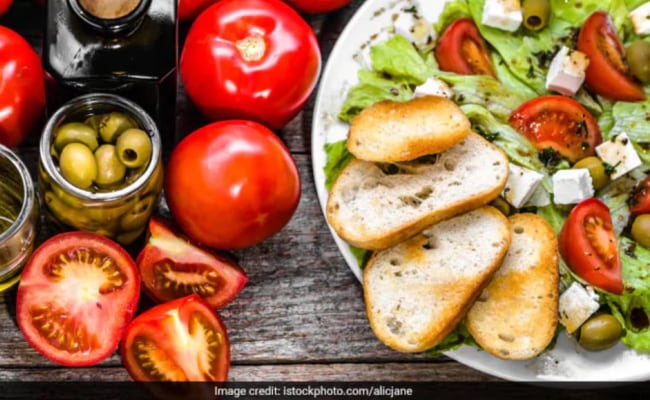Mediterranean diet is a diet inspired from the eating habits of the people of Greece, Spain and Southern Italy in the 1940s and 50s. One of the main aspects of this diet is the high intake of healthy fats and fresh foods, including olive oil, nuts and seeds, fruits and vegetables as well as legumes and whole grains or unrefined grains. The diet also recommends moderate inclusion of fish and dairy products in the diet. Mediterranean diet has been linked with a number of health benefits with several scientific studies. Now a new study has indicated that consuming Mediterranean diet may lower risks of depression. The study said that people who follow Mediterranean diets, especially one that is rich in fresh vegetables, had low risks of developing depression or related symptoms.
The preliminary study was presented at this year's Annual Meeting of the American Psychiatric Association (APA) in San Francisco, California in the US and it corroborates previous scientific evidence indicating that including these foods in our diets was good for our mental health. For the study, the researchers looked at the patients of a day-care center in Greece. Among the participants, a good 64 per cent reported a moderate adherence to the Mediterranean diet and the rest 34 per cent said that they strictly adhered to the diet. The researchers observed that about 25 per cent of the patients showed symptoms of depression. Additionally, more women were depressed from this sample size, than men.
Those who had stricter adherence to the Mediterranean diet, particularly one that was also low in poultry and alcohol, were found to have a lower risk of developing depressive symptoms. The researchers concluded that following a plant-rich diet may lower risks of depression. However, they also said that their study was merely observational and was not seeking a cause and effect relationship. This means that while the researchers said that following Mediterranean diet lowered risk of depression, having depressive symptoms also lowered an individual's chances of following a nutritious and healthy diet.
(This content including advice provides generic information only. It is in no way a substitute for qualified medical opinion. Always consult a specialist or your own doctor for more information. NDTV does not claim responsibility for this information.)












